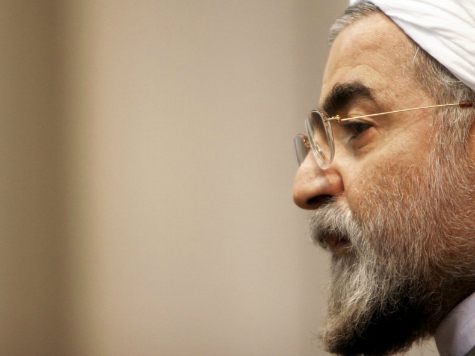According to a high-level Iranian source, the United States gave advance warning to Iran before striking ISIS and al-Qaeda-linked targets in Syria, and promised Tehran that it would not target any forces of the Syrian government, reports Reuters.
The report was confirmed in part by a senior U.S. State Department official. When asked whether the American administration had given assurances to Iran that it would not strike the forces of Syrian President Bashar Assad, the U.S. official told Reuters: “We communicated our intentions, but not specific timing or targets, to the Iranians. As we’ve said, we won’t be coordinating military action with Iran. And of course we won’t be sharing intelligence with Iran either.”
However, according to the senior Iranian official, those lines may have been blurred. Speaking on condition of anonymity, he said that Tehran had expressed concern for Assad with the Americans, and discussed the issue “thoroughly” with the U.S.
“Iran was concerned about Assad’s position and his government being weakened in case of any action against IS (Islamic State) in Syria and brought this issue up in meetings with Americans,” said the official.
“This issue was first discussed in Geneva and then was discussed thoroughly in New York where Iran was assured that Assad and his government will not be targeted in case of any military action against Daesh (Islamic State) in Syria.”
The official added that this was the first time Washington informed Tehran in advance of its launching of airstrikes.
The communication between the two governments may indicate an evolving, complex relationship. The U.S. cut ties with Iran in 1979 after the Islamic revolution and the Iranians taking U.S. Embassy personnel hostage. The U.S. also considers Iran to be a sponsor of several terror groups. But having a common foe in ISIS has brought a confluence of interests to the two nations.
Iran is Syria’s closest ally in the region and supplies the Assad government with military support in its civil war, which has killed over 190,000 Syrians in three years. Radical Sunni Muslim groups such as ISIS have been struggling to topple the Assad government, and have taken control of large swaths of Syrian and Iraqi territory.
Some Iranian leaders have indicated that they would be willing to work with the U.S.-led alliance against ISIS in exchange for concessions on Iran’s nuclear program, which is widely believed to be intended to lead to the development of nuclear weapons.
The official White House position is that America would refuse to link the nuclear talks, scheduled to resume this week, with the fight against ISIS and other militants in Syria.

COMMENTS
Please let us know if you're having issues with commenting.